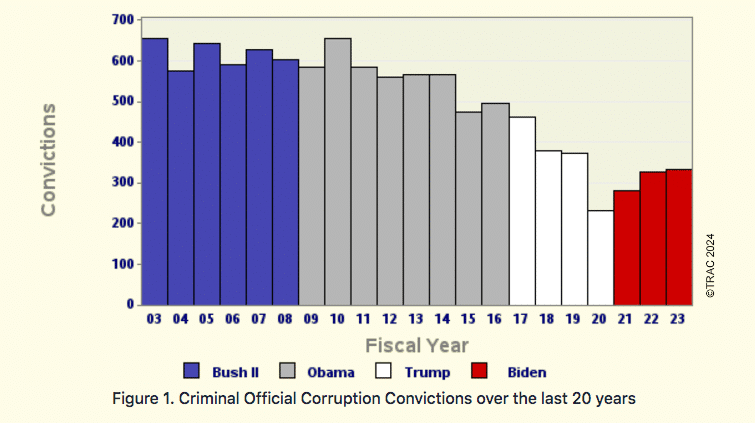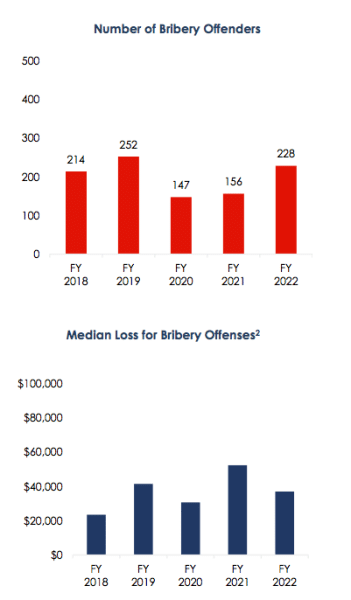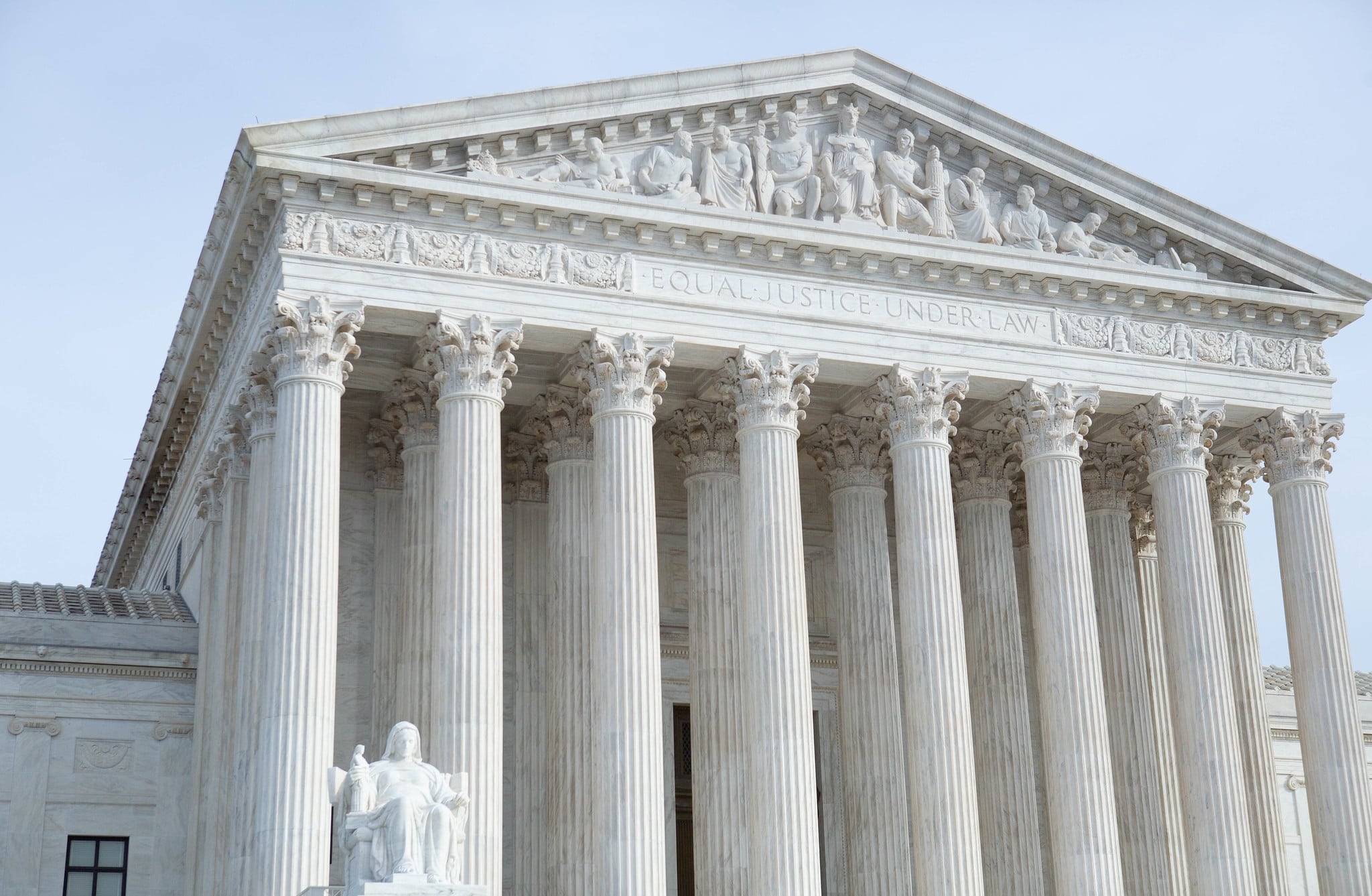In a controversial 6-3 decision, the United States Supreme Court overturned the bribery conviction of a former Indiana mayor this week, and legal experts claim that the decision narrowed the scope of federal public corruption law. The ruling, which has sent shockwaves through legal and political circles, could set a powerful precedent for how bribery cases against public officials may be prosecuted in the future.
This decision is set to redefine bribery in the US entirely and shake up the business world.
At the center of the controversy is James Snyder, the former mayor of Portage, Indiana. Snyder was convicted in 2019 for accepting a $13,000 payment from a garbage collection company after he granted it contracts valued at around $1 million.
Naturally, Snyder was found guilty of corruption and was sentenced by local courts to 21 months in federal prison. He contested that the check he received was not illegal as it was awarded after the contract was granted, not before.
However, an executive from the company awarded the contract confessed that Snyder was struggling financially at the time and had explicitly asked for the money in exchange for favoring the contractor.
Clash of Opinions Among Supreme Court Judges
In a majority opinion authored by Justice Brett Kavanaugh, the Supreme Court ruled that the federal anti-bribery law in question, Section 666, does not criminalize gratuities given to state and local officials for actions they have already taken. This interpretation marks a significant departure from how the law has been applied in the past.

Justice Kavanaugh outlined six reasons in total for the Court’s decision. He argued that the text of Section 666 is modeled on the federal bribery statute, not the gratuities statute. Furthermore, Congress amended the law in 1986, moving it away from language resembling the gratuities statute.
Also read: A Ranking Of The Most Conservative Modern Supreme Court Justices
Kavanaugh also contended that it would be unusual for a single statute to cover both bribery and gratuities, which are typically treated as separate crimes.
The majority opinion also expressed concern that the government’s interpretation would create an “inexplicable regime” with the same punishment for both bribery and gratuities. Additionally, the ruling seeks to respect the right of state and local governments to regulate gratuities for their officials.
Finally, Kavanaugh argued that the government’s interpretation could criminalize common practices without clear guidelines.
In his written opinion, Kavanaugh stated, “Some gratuities can be problematic. Others are commonplace and might be innocuous. The lines aren’t always clear, especially since many state and local officials have other jobs.”
Three Justices Strongly Dissent with the Majority’s Opinion
The Court’s three liberal justices strongly disagreed with the majority’s interpretation. To showcase their sharp dissent, Justice Ketanji Brown Jackson, joined by Justices Sonia Sotomayor and Elena Kagan, voiced harsh opinions on the ruling and argued that the plain text of the statute clearly covers gratuities paid to officials after they have acted.
Justice Jackson wrote: “Snyder’s absurd and atextual reading of the statute is one that only today’s court could love.” She contended that the majority’s interpretation ignores the clear wording of the law aimed at rooting out public corruption.
Legal Experts Claim That Supreme Court Continues to Undermine Public Corruption Laws
Legal experts claim that the Supreme Court has been undermining the scope of federal public corruption laws lately and have voiced their concerns about the ramifications that this precedent sets for the system.

Immediate implications are expected for ongoing corruption cases across the country. Ryan Levitt, a white-collar defense attorney said: “There are going to be no shortage of appeals.”
The Supreme Court’s decision makes it even harder for prosecutors to convict corrupt politicians in states and municipalities. In this regard, Kedric Payne, vice president of the Campaign Legal Center stressed: “It’s shocking, but it’s not surprising that the court came out that way. [The decision] makes it harder to go after public corruption — and that’s been the trend of the court for quite some time now.”
Also read: Supreme Court To Discuss Florida Betting Case On June 13th
Moreover, the ruling appears to push state and local governments to come up with rules and regulations that tackle the issue instead of turning to federal courts to pursue corruption cases. Naturally, many politicians in these governments don’t want to pass laws strengthening corruption rules. Why would they pass laws to make it easier to convict themselves without massive pressure from voters?
This decision will likely result in significant variations among states on how gratuities, bribes, and gifts to in-office politicians and government officials are treated.
Notable previous rulings that are also considered harmful to the adequate enforcement of public corruption laws include the Court’s 2016 decision that overturned the bribery conviction of former Virginia Governor Bob McDonnell and the 2010 ruling that sharply curbed prosecutors’ use of an anti-fraud law in the case of the former Chief Executive Officer of Enron, Jeffrey Skilling.
These decisions have collectively narrowed the legal definition of corruption and raised the bar for what prosecutors must prove to obtain a conviction for these cases.
The Ruling Favors “Pay-to-Play” Politics
One of the most dangerous implications of the ruling is that it could open up the door for the proliferation of not-so-subtle forms of political influence involving money and gifts. Companies may reach verbal accords with acting officers in states and municipalities and extend these gratuities after being granted contracts as the Supreme Court’s ruling set the precedent that these should not be treated as bribes. This essentially legalizes bribery for actors smart enough to get around the extremely specific and weak laws and precedents.
Also read: DOJ May Soon File Criminal Charges Against Boeing Over 737 Max Safety Problems
The dissenting justices and various other legal experts contend that the majority’s interpretation goes against the clear intent of anti-corruption laws. They argue that distinguishing between bribes and gratuities in this manner creates an artificial and potentially harmful distinction.
There are also concerned that the ruling could further erode the public trust’s in government institutions. By potentially allowing officials to accept valuable gifts or payments after official acts, the decision may contribute to creating the perception of a prevailing “pay-to-play” political culture.
Fittingly, this decision comes at a time when the Supreme Court itself has faced criticism over ethical issues related to undisclosed gifts and trips accepted by some justices. This context has led some observers to question if these personal experiences may have influenced their interpretation of the law.
Congress and States May Take Action to Prevent a Spike in Corruption Cases
If enough public outcry surfaces as a result of the ruling, Congress can always make amends to existing laws to provide additional clarity that helps mitigate the damage that the Supreme Court may have made to the law’s enforcement scenarios. However, the case hasn’t seen much media attention and it would likely take a lot of prodding to get lawmakers to pass laws to make it easier to convict themselves of corruption.
Meanwhile, local advocacy groups and legal experts may force states and municipalities to strengthen their rules and create specific provisions that clarify when gifts can be considered straightforward bribes.
The bottom line is that the Supreme Court’s ruling in Snyder v. United States represents a significant shift in how public corruption laws are interpreted and how cases can be prosecuted.
By narrowing the definition of what constitutes illegal bribery under federal law, the Court has reshaped the legal framework for pursuing corruption cases against state and local officials.
While supporters of the decision argue that it provides clearer guidelines and respects state sovereignty, critics contend that it creates dangerous loopholes that could be exploited by corrupt officials and by corporations and individuals seeking to influence them to fulfill their own agendas.
